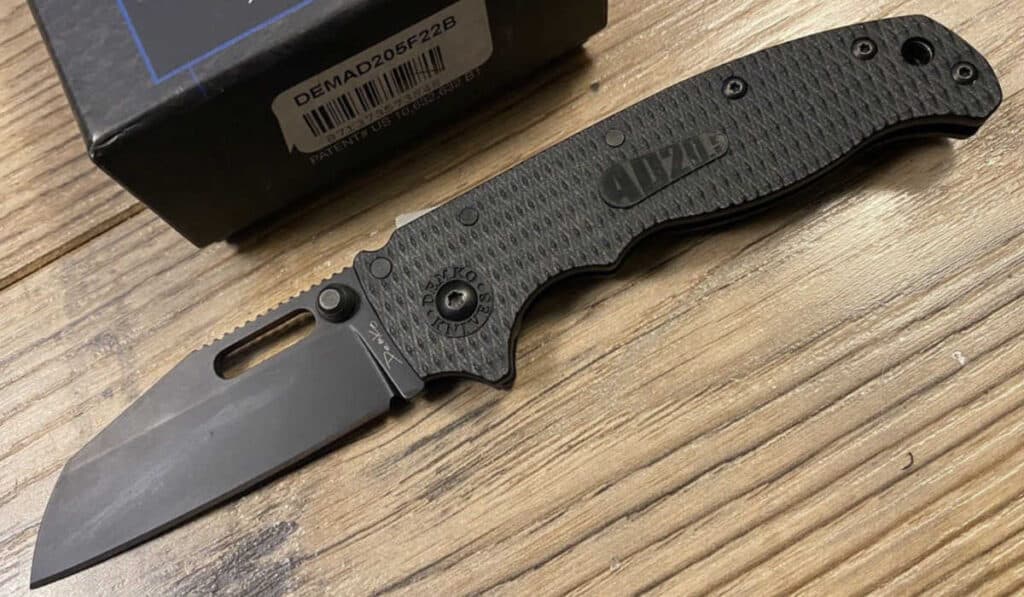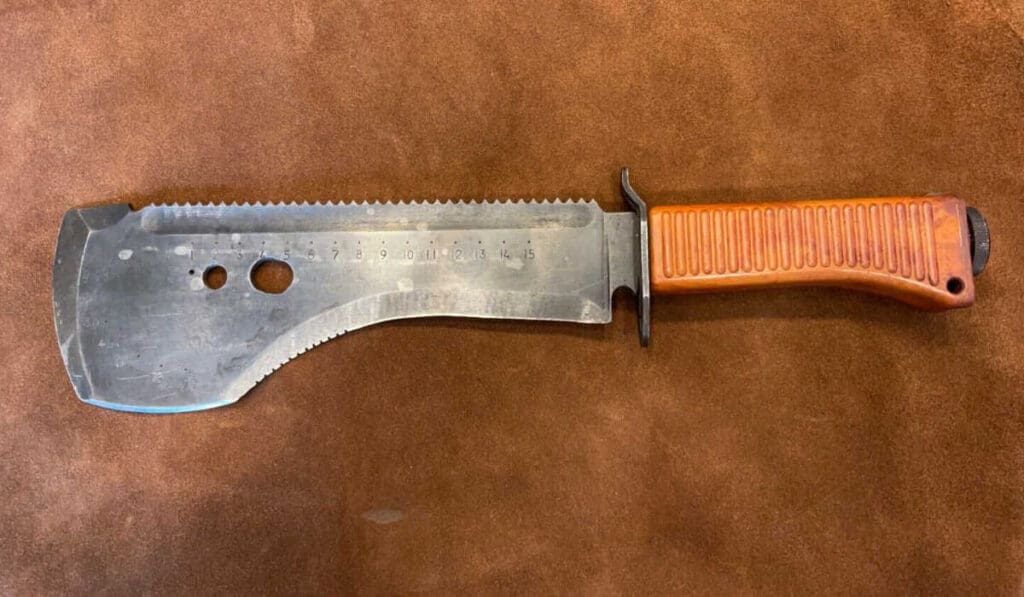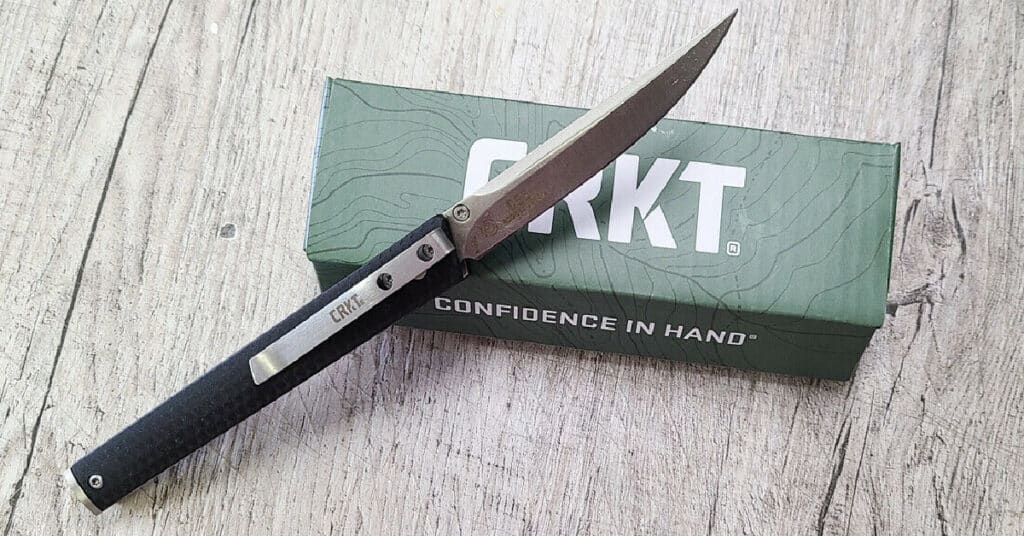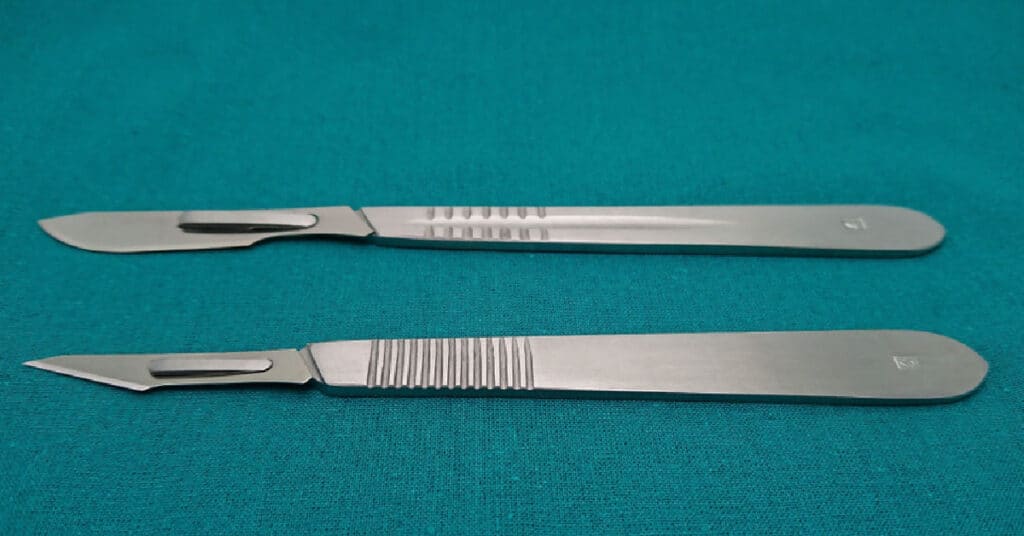Last updated on October 21st, 2023 at 05:12 pm
As an Amazon Associate I earn from qualifying purchases.
Oregon knife laws are important to know if you live in the state of Oregon or plan on visiting.
In fact, it’s essential to understand what is legal and not when it comes to carrying, possessing, and using knives in public or private spaces.
This guide covers all aspects of Oregon knife law so that you can stay informed about your rights as a pocket-knife owner.
From understanding where you can carry your pocket knife legally to being aware of potential penalties for violating these laws, this complete guide will help ensure that you comply with Oregon knife law while still enjoying owning a pocket knife responsibly.
Our Top Rated “50-State-Legal” Knives
*These knives are listed based on their broad legality across states, but always consult your local laws before making a purchase.
Overview of Oregon Knife Laws
The state has a straightforward approach towards knife laws, yet some local jurisdictions enact stricter regulations. It’s important to understand these laws to ensure compliance.
Is There A Statewide Preemption For Knife Laws In Oregon?
In Oregon, there is no statewide preemption for knife laws, meaning that while there are state laws that apply uniformly across Oregon, local jurisdictions are also allowed to enact their own knife laws. Therefore, knife laws can vary from city to city and county to county24.
While Oregon’s state laws are generally quite permissive concerning knife ownership and carry, certain cities or counties might have more restrictive rules. For instance, Portland is free to enact much stricter knife laws than the rest of the state if they so wish.
Definition of a Knife
In Oregon, a knife is defined as an instrument capable of cutting. The state doesn’t categorize any knives as illegal regarding ownership and possession, encompassing a broad spectrum including pocket knives, switchblades, and more.
Prohibited Knives
No knives are outright banned, but concealed carry of certain types like automatic, assisted opening, and butterfly knives, along with dirks, daggers, or ice picks is prohibited.
Carrying Knives in Public
Open Carry Restrictions
Oregon law has no blade-length restriction for knives openly carried, but local laws might have restrictions on carrying specific types of knives5.
Concealed Carry Restrictions
Concealed carry of certain types of knives, like any automatic knife, assisted opening knife, butterfly knife, dirk, dagger, or ice pick is prohibited in Oregon14. There’s no requirement for a concealed handgun license (CHL) to carry a concealed knife.
Possession of Knives on School Grounds
Knives are prohibited on all school premises, from elementary to university levels.
Possession of Knives in Private Places
Private property ownership rights in Oregon allow individuals to possess knives on their own property. This includes both residential and commercial properties. However, employers are allowed to set rules about what type of knife may be brought onto their premises.
Use of Knives in Self-Defense Situations
When it comes to using a knife for self-defense, the law in Oregon is clear: it is only justified when you are facing an imminent threat of death or serious bodily harm. However, even if you can prove that your actions were necessary to protect yourself from harm, this does not guarantee immunity from prosecution.
Penalties for Violating Oregon Knife Laws
Violating concealed carry laws can result in a Class B misdemeanor. Possession of a dangerous weapon in public buildings or court facilities leads to a Class C felony, punishable by up to five years in prison and a fine of up to $125,000.
FAQs in Relation to Oregon Knife Law
What size knife is legal in Oregon?
There isn’t a specific restriction on knife size for carrying in Oregon, although local laws might have their own specifications.
Can you carry a fixed-blade knife in Oregon?
In Oregon, you can generally carry a fixed-blade knife openly. For concealed carry, there are no specific state-wide laws restricting it, but local restrictions might apply.
Are switchblades legal in Oregon?
Switchblades are legal in Oregon. However, it is against the law to carry them concealed.
Are butterfly knives legal in Oregon?
Butterfly knives (also known as balisong knives) are legal to own in Oregon but are restricted from concealed carry.
Are OTF knives legal in Oregon?
OTF (Out the Front) knives are legal in Oregon. The state does not have laws that specifically restrict the ownership or open carry of OTF knives.
Oregon State Knife Law References
Official Sources of Oregon’s Knife Laws
- Legal Codes: Oregon’s knife laws are primarily found in the Oregon Revised Statutes (ORS) under section 166.240 titled “Carrying of concealed weapons”.
- Definitions: In ORS 161.015, a “dangerous weapon” is defined as any item that, depending on its use, can readily cause death or serious physical injury.
Notable Court Cases:
| Case Name | Summary |
|---|---|
| State v. Threlkeld | This case revolved around whether the knife found in the defendant’s pocket was a “dagger,” as ORS 166.240(1) prohibits the concealed carry of certain types of knives. |
| State v. Delgado | This case established that bans on certain types of knives were unconstitutional as they violated the 2nd amendment’s right to bear arms. |
| Oregon v. Thompson | Defendant Darius Thompson committed robbery with a knife, which led to the victim shooting the defendant. |
| State v. Boswell | The court ruled that one must be carrying a weapon listed as illegal or a similar weapon designed for use as a weapon to be convicted of carrying a concealed weapon. |
| City of Portland v. Lodi | This case invalidated a Portland ordinance, impacting the concealed carry regulations of certain types of knives. |
Timeline of Major Changes:
- Pre-1984: Knife laws existed but the specifics before 1984 are not clearly documented.
- 1984: In the case of State v. Delgado, the Supreme Court of Oregon found that the former Oregon statute § 166.510(1) was unconstitutional because it prohibited the mere possession and carrying of a weapon.
- 1987: In State v. Boswell, the Appellate Court ruled on the requirements for a conviction of carrying a concealed weapon.
- 1989: In City of Portland v. Lodi, a Portland ordinance was invalidated by the Oregon Supreme Court, impacting the regulations on concealed carry of certain types of knives.
- Post-1989: The laws regarding pocket knives and other types of knives evolved over the years with societal changes influencing their development.
Conclusion
In conclusion, Oregon knife laws are complex and vary depending on the type of knife you own or carry.
It is important to be aware of all applicable state and local regulations before carrying a pocket knife in public.
While there are exceptions to some of these laws, it is best to err on the side of caution when considering any potential violations.
If you have any questions about Oregon knife law, consult an attorney for legal advice or visit the resources listed above for more information. Remember that knowledge is power when it comes to understanding your rights under Oregon knife law.
Do Sheepsfoot Blades Have A Purpose? (Cuz They’re Ugly…)
Spetsnaz Machetes – Blades Of The Russian Special Forces
What Is The Actual Purpose Of A Spear Point Knife Blade?
CRKT CEO Review – Coolest, Most Worthless Knife Ever?
How Sharp Is A Scalpel? (Is It Sharper Than A Razor?)
Can You Shave With A Knife? (Yes, Here’s How)
As an Amazon Associate I earn from qualifying purchases.










